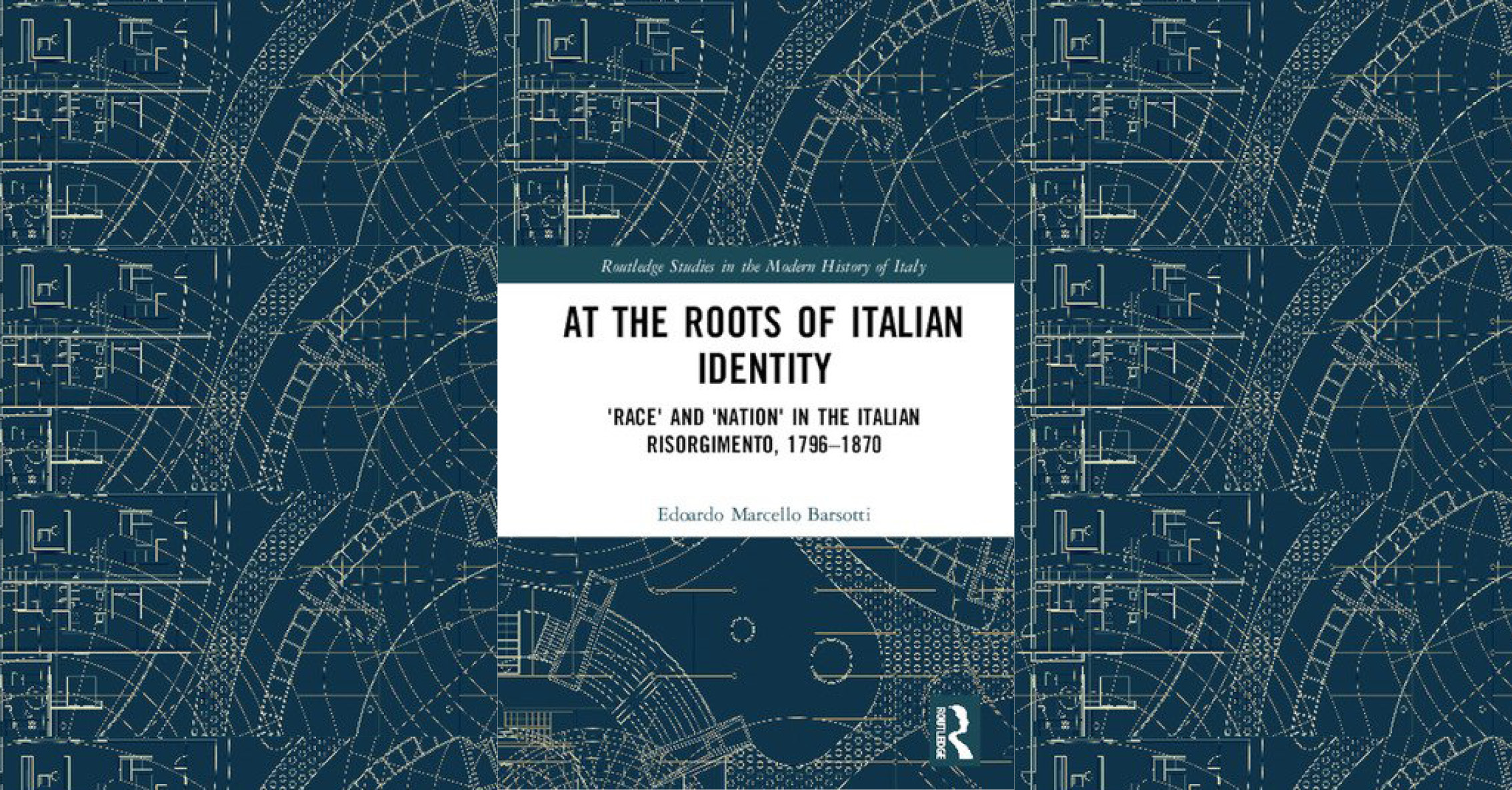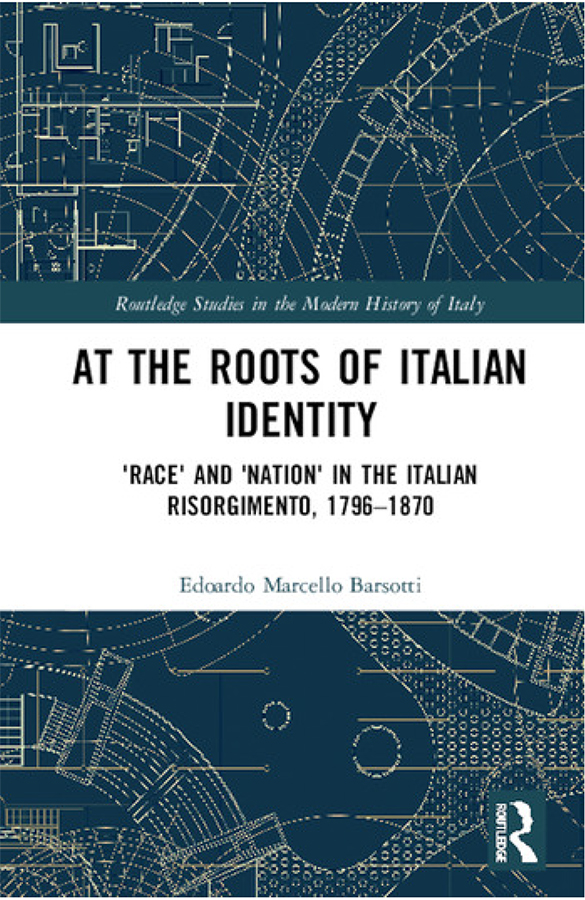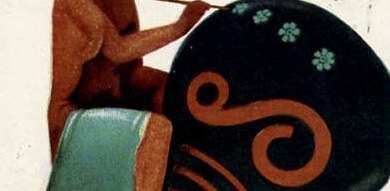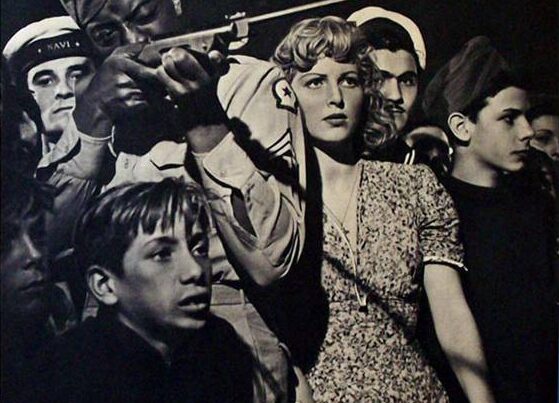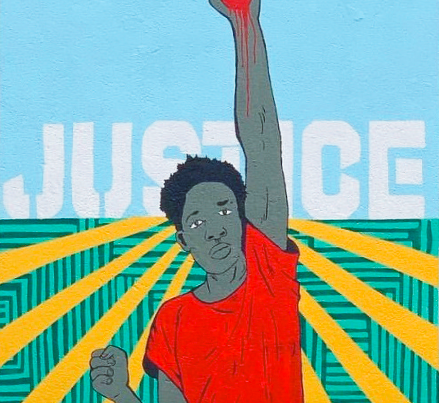Edoardo Marcello Barsotti (Ph.D. Fordham University, 2019) is a historian of nationalism and race-thinking in eighteenth- and nineteenth-century Italy. Among his last publications stand: At the Roots of Italian Identity: ‘Race’ and ‘Nation’ in the Italian Risorgimento, 1796-1870 (Abingdon-New York: Routledge, 2021); “Race and Risorgimento: An unexplored chapter
of Italian history” Journal of Modern Italian Studies 25, no. 3 (2020): 273-294); “‘V’ha bensì un’Italia e una stirpe italiana congiunta di sangue’: razza e genealogia nazionale nel Risorgimento italiano,” Rassegna Storica del Risorgimento 1, no. 1-2 (February 2021, forthcoming). He is currently investigating the birth of an anti-racist discourse among Risorgimento’s intellectuals.
As the director of CENTRA, I am pleased to interview Edoardo Marcello Barsotti, a member of our research team and author of a new forthcoming book: At the Roots of Italian Identity: ‘Race’ and Nation in the Italian Risorgimento, 1796-1870 (Routledge, 2021). In his monograph, Barsotti examines the contribution of race-thinking in the definition of Italian nationality during the nation-building process. In doing so, the author fills a considerable gap in the historiography of nationalism and racism by illustrating how early nineteenth-century Italian élites were fully conversant with the broader international debate on race and ethnicity.
The author argues that despite their ideological divergences, Risorgimento nationalist intellectuals considered the nation a biopolitical community. Consequently, ideas of race – understood as the “natural basis” of nationality – played a considerable role in defining who was within and without the nation. We welcome At the Roots of Italian Identity as a valid contribution to the history of race and racism, and we are going to exchange a few words with the author concerning the book and future research paths.
Francesco Cassata
F.C.: Why and how did your research originate? Which concerns underpinned your investigation of the relationship between the ideas of race and nation during the Italian nation-building era?
E. B.: Curiously, my research on the Italian racial “self” originated from the examination of Italian debate over slavery and the US Civil War. I was impressed by the lack of publications covering race-thinking and racism before the Italian Unification. With few notable exceptions, historiography still seems concerned with investigating only the dynamics and legacy of colonialism, anti-Semitism, Fascism, and the construction of an Italian racial “self” in opposition to the Blacks, Jews, or any “exotic” or “enemy” group. The focus on the heteroreferential construction of race from colonialism onward prompted a twofold and yet paradoxical result. On the one hand, the alleged lack of colonial encounters before 1861 still spurs the argument for the liberal and universalistic essence of the Risorgimento nationalism: a race-blind, “innocent” era before the disasters of imperialism and jingoism. On the other, some scholars maintain that common discursive traits directly bind Risorgimento’s nationalism and discourse on race to the horrors of Imperialism and the Shoah. In sum, whether a 100% innocent or a 100% guilty Risorgimento: two interpretations preventing scholars from considering the evolution of intellectual and political context and, therefore, historicizing race and racism. By focusing on the construction of the racial “self” during the nation-building process, I hopefully demonstrated how the evolution of the political, cultural, and scientific context modified this process with fascinating and unexpected results.
F. C.: What is the argument of your book, and what are its implications?
E.B.: My book contends that Risorgimento’s intellectuals considered the nation an “organic” community: that is, a community with a biological foundation. In this sense, the idea of race served a twofold aim. First, it displayed the bio-historical development of the nation understood as a proper community of descent. Second, by acting as the natural foundation of nationality, race could present the nation-state as the only preexisting and legitimate form of sovereignty.
Furthermore, the studies and debate over the racial layout of the Peninsula affected the political disputes over the best forms of statehood.
In short, my book demonstrates that in early nineteenth-century Italy, race mattered whether in defining the “self” and the “other” or in planning the future nation-state to-be. Ultimately, this book shows that early nineteenth-century Italians were au courant with major global trends and that they were neither latecomers nor isolated actors in the broader history of European race-thinking.
F.C.: How does your book relate to the historiography of Risorgimento nationalism?
E. B.: My book relates to the cultural historiography of Risorgimento, which is concerned with explaining how Italian nationalists conceived of their nation. Specifically, it relates to those works on the modalities of representation of the national past and its political use. My book builds on the questions raised by scholars like Alberto M. Banti, Silvana Patriarca, Antonino De Francesco to analyze the construction of Italian national identity in relation to the coeval evolution of racial thought. In this sense, this book is the first attempt to connect the history of Italian nationalist scholarship and mythopoeses with the circulation and development of racial and racist ideas in the Peninsula.
F.C.: Is there any aspect of your topic that you deem worthy of further investigation?
E. B.: Undoubtedly, my research tangentially touches on some aspects that deserve further investigation. First of all, I only examined some of the most influential figures and disputes in the pro-Risorgimento movement. There is still a lot to do in mapping the opinions of the entire “patriotic” front, and I am confident that the examination of “minor” figures will shed further light on the circulation and percolation of ideas. Second, I did not investigate the reconstruction of the Italian racial past by the anti-Risorgimento authors: I speculate if and how they could employ the same sources and theories for opposite purposes or, conversely, if they drew on other authoritative models. Lastly, my book examined the circulation of ideas among intellectuals, but I could not cover their percolation in the broader public and political debate. It would be fascinating to explore the extent to which this intellectual debate affected Italian politics and society.
F.C.: What are your current research objectives, and why do you think they are of paramount importance for the history of racism and anti-racism?
E. B.: I am interested in delineating a history of race-thinking in Italy from the Enlightenment to Positivism. This task is ambitious and challenging. Yet, the more we study Italian racisms, the more it is imperative to investigate the epistemological roots of “modern” racial thought in the Peninsula. Scholars of racism rightly point out the social and political premises of the phenomenon: in short, why we conceive of humanity and discriminate human beings as “races.” I think, however, that to understand racism as a dynamic phenomenon, it is equally relevant examining how racial thought functions and evolves.


